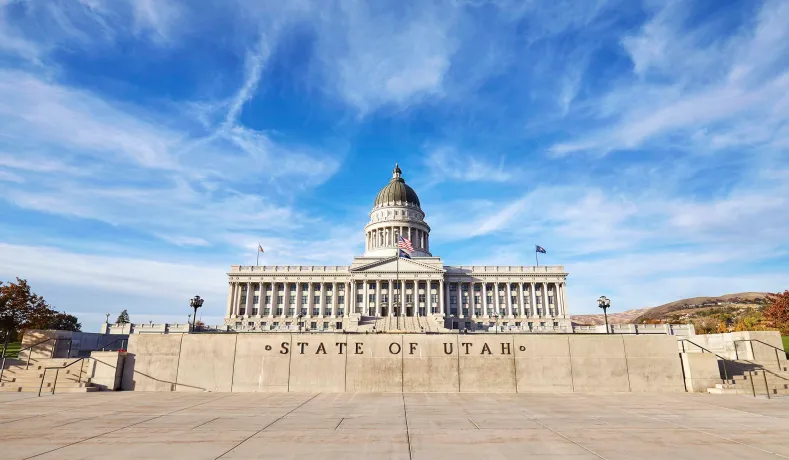

Insights & Takeaways is Sutherland Institute’s official blog that informs the public and policymakers alike. The blog addresses important issues through the two distinct yet complementary lenses of the seasoned policy professional and the engaged citizen.
 Insights: analysis, research, and informed commentary from Sutherland experts. For elected officials and public policy professionals.
Insights: analysis, research, and informed commentary from Sutherland experts. For elected officials and public policy professionals.
 Takeaways: the most important things voters need to know. For civically engaged citizens.
Takeaways: the most important things voters need to know. For civically engaged citizens.
Civics Refresher: How to vote in Utah
Utah has three ways for you to cast your vote this Election Day. We explain the process for each one.
How early traditions made school open enrollment necessary
Property tax for funding schools and redlining are among the reasons behind current neighborhood-based school assignments.
Utah’s U.S. Senate delegation at the Congressional Series
Sens. Romney and Lee participated in the 2024 Congressional Series. Here’s what they said.
Does access to information impact parent involvement in education?
Parents and teachers have different views on what stops parents from being more involved. Understanding what constitutes “enough information” for parents may be helpful.
The Comeback Kid: Trump is attempting a maneuver only one president has pulled off
Cleveland ran on a “drain the swamp” platform – and later used allegations of a stolen election – at a time of deep distrust in government, political polarization and wide economic gaps.
Those who treat politics as religion undermine the Constitution they claim to love
When people make politics their faith, growing distrust in institutions is inevitable — as those with different political views now become the enemies of truth.
Take a step back from the ballot initiative hot takes and take a look at the big questions
How could the Utah Supreme Court conclude that the constitution's reference to “legislative power” contains an unwritten limitation on that power?
What self-reports of parent and teacher efforts reveal for reform
Self-reports of teachers sharing curriculum and parent involvement highlight inconsistencies that public policy can help address.
How religious communities are leading the hurricane relief effort
As communities across the Southeast recover from Hurricane Helene, religious communities have come together to help.
9th Circuit upholds religious universities’ Title IX exemptions
If it chose to act, Congress could further secure the religious freedom protections upheld by the court.
The importance of federalism and Utah’s public lands lawsuit
A recent Sutherland Institute Congressional Series event featured Representative Celeste Maloy discussing the importance of federalism.
The real issues at stake in the debate over Amendment D
It is confusing — and it’s another example of lawmaking moving from a duly elected legislative body to the courts.
Simple reforms to make school district websites better for parents
Districts can make sure information about curriculum is easy to find, that it’s organized in a user-friendly way, and that links are working and updated.
Missing the significance of the voter initiative amendment
So far, the debate over the amendment is missing one of the most important constitutional principles at stake: the separation of powers.
Five bygone elections that echo into 2024
Another quadrennial brings another round of the same hyperbole. Who’s to say none of them apply to 2024? But an honest look at past elections suggests that there is nothing new under the sun.
How nonprofit Next Step to Success teaches kids the ‘success sequence’
Nonprofit and community collaboration can help fill gaps of support for students in areas where public policy can’t reach as effectively.
How Utah can increase parent access to curriculum
To advance the work of individual educators without overburdening them with new requirements, the Legislature could enact a program that rewards teachers who proactively make curriculum information accessible to parents in a robust way.
Federal agency ‘guidance’ uses a backdoor approach to avoid open public process
States should collect and make publicly available the guidance they are given so that it can be assessed and, as necessary, criticized and challenged.


















